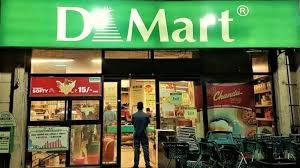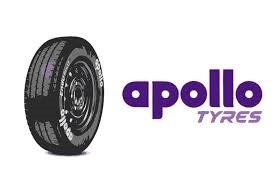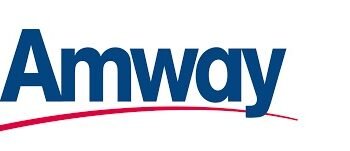Avenue Supermarts posts steady growth as retail demand surges; stock climbs 21% in 2025 so far
New Delhi | Economy India | India’s leading retail chain D-Mart, operated by Avenue Supermarts Ltd (ASL), has reported a consolidated net profit of ₹746 crore for the second quarter (Q2) of FY2025–26, marking a 5.07% year-on-year (YoY) increase compared to ₹710 crore in the same period last year.
The company’s revenue from operations for the July–September quarter stood at ₹16,219 crore, up 15.43% YoY from ₹14,050 crore in Q2 FY2024–25. The robust revenue growth highlights D-Mart’s expanding customer base and its steady recovery in consumer spending across India’s urban and semi-urban markets.
📈 Revenue and Profit Growth Despite Inflationary Pressures
Despite ongoing inflationary challenges and fluctuating commodity prices, D-Mart managed to maintain profitability through efficient supply chain management and a focused approach toward private labels and essential categories.
Industry analysts suggest that the company’s strong value-for-money retail model continues to attract middle-income consumers, particularly in Tier-II and Tier-III cities, which have become D-Mart’s growth engines.
💹 Stock Performance: Up 21% Year-to-Date
On Friday, October 10, shares of Avenue Supermarts Ltd closed 0.53% higher at ₹4,328 per share on the NSE ahead of the earnings announcement.
While the stock has seen a 5% decline over the past year, it has gained 21% year-to-date and about 5% in the last six months, reflecting renewed investor confidence in India’s consumption-driven retail sector.
With a market capitalization of ₹2.81 lakh crore, D-Mart remains one of the most valued retail companies in India, underscoring its leadership in the organized retail space.
🏪 D-Mart’s Journey: From One Store to a Retail Empire
Founded by Radhakishan Damani, one of India’s most respected investors and entrepreneurs, D-Mart opened its first store in Powai, Mumbai in 2002. Damani, known for his conservative yet visionary business approach, initially experimented with a franchise model under ‘Apna Bazaar’ in Navi Mumbai’s Nerul area in 1999, but later pivoted to a fully-owned retail model that laid the foundation for D-Mart’s long-term success.
Over the years, D-Mart has expanded its footprint to hundreds of stores across India, maintaining a consistent focus on essentials—food, groceries, FMCG, and household products—rather than diversifying into high-margin but volatile categories.
📊 Public Listing and Market Journey
D-Mart’s parent company, Avenue Supermarts Ltd, went public on March 21, 2017, debuting with a market capitalization of ₹39,988 crore. Since then, the company has witnessed an exponential rise, with its current market cap soaring to ₹2.81 lakh crore — a sevenfold increase in just eight years.
The IPO was one of the most successful in Indian retail history, with investors reaping significant returns over time. D-Mart’s financial discipline, consistent profitability, and low-debt structure have made it a benchmark in the retail industry.
👨💼 Leadership and Strategic Vision
Under the leadership of Neville Noronha, CEO and Managing Director of Avenue Supermarts, the company continues to emphasize operational efficiency, customer satisfaction, and expansion into emerging markets.
Noronha’s strategy of maintaining cost discipline and high inventory turnover has enabled D-Mart to sustain margins even in challenging market conditions. The retailer’s “Everyday Low Cost, Everyday Low Price” philosophy remains its strongest differentiator.
🛒 Future Outlook: Expansion and E-commerce Push
Looking ahead, D-Mart is expected to accelerate store expansion, particularly in southern and eastern India. The company is also focusing on its e-commerce arm — DMart Ready, which offers online grocery delivery services in select cities.
While competition from online players like Amazon Fresh, Blinkit, and BigBasket remains intense, D-Mart’s hybrid approach — combining physical retail strength with digital convenience — positions it well to tap India’s growing online grocery market.
Experts anticipate that with India’s retail consumption projected to reach $1.5 trillion by 2030, D-Mart is likely to remain a key player in shaping the future of organized retail.
📉 Challenges Ahead
Despite its strong fundamentals, D-Mart faces short-term challenges, including:
- Rising operational costs due to inflation.
- Competition from digital-first grocery chains.
- Supply chain disruptions and real estate constraints for new store openings.
However, analysts remain optimistic, citing the company’s cash-rich balance sheet, consistent cash flows, and proven customer loyalty as strong defensive moats.

🧾 Key Financial Highlights (Q2 FY2025–26)
| Metric | Q2 FY25–26 | Q2 FY24–25 | YoY Change |
|---|---|---|---|
| Net Profit | ₹746 crore | ₹710 crore | +5.07% |
| Revenue from Operations | ₹16,219 crore | ₹14,050 crore | +15.43% |
| EPS (Earnings Per Share) | ₹11.6 | ₹11.0 | +5.5% |
| EBITDA Margin | 8.4% | 8.2% | +0.2% |
| Market Capitalization | ₹2.81 lakh crore | ₹2.46 lakh crore | +14% |
🗣️ Analyst Commentary
“D-Mart’s steady Q2 performance reflects resilience in consumer spending and operational excellence amid a challenging macroeconomic backdrop,” said Suresh Ganapathy, Senior Retail Analyst at Axis Securities.
He added, “With a strong expansion pipeline and improving demand trends, we expect double-digit revenue growth for the next few quarters.”
🌐 A Benchmark for Indian Retail
D-Mart’s journey from a single Mumbai store to a multi-billion-dollar retail powerhouse embodies India’s evolving consumption story. As it continues to balance affordability with efficiency, D-Mart remains a bellwether of India’s organized retail success.
For investors, consumers, and competitors alike — D-Mart’s Q2 results reaffirm that steady, disciplined growth still outperforms flashy expansion.
(Economy India)













